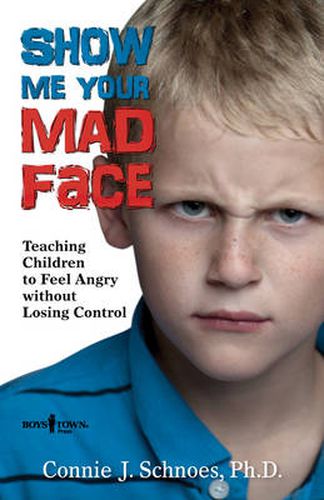Readings Newsletter
Become a Readings Member to make your shopping experience even easier.
Sign in or sign up for free!
You’re not far away from qualifying for FREE standard shipping within Australia
You’ve qualified for FREE standard shipping within Australia
The cart is loading…






Children get angry for many different reasons. Young children may throw tantrums when they are tired, frustrated or unhappy. Teens may use anger to either get what they want or get out of doing something they don’t like, such as homework or chores. Exhausted or frightened by frequent outbursts, parents often try to avoid doing or demanding anything of their children that might trigger their anger. Author, Connie Schnoes, however, tells parents not to shield children from situations that make them angry. Instead, all children must learn that feeling angry at times is a normal emotion and there are appropriate ways to control and express anger without hurting themselves or others. Her book helps parents: * Recognise angry behaviour in children and act before it becomes a problem * Understand a child who is often angry and learn what that anger might represent * Teach children to stop using angry and aggressive behaviour and learn new, positive ways of behaving and expressing anger or frustration * Know when it’s a good idea to seek professional help for a child who is often angry Using many examples from her clinical practice and her own family to highlight her helpful advice, Dr. Schnoes offers hope to parents worn out and worried by their children’s explosive, angry behaviour.
$9.00 standard shipping within Australia
FREE standard shipping within Australia for orders over $100.00
Express & International shipping calculated at checkout
Children get angry for many different reasons. Young children may throw tantrums when they are tired, frustrated or unhappy. Teens may use anger to either get what they want or get out of doing something they don’t like, such as homework or chores. Exhausted or frightened by frequent outbursts, parents often try to avoid doing or demanding anything of their children that might trigger their anger. Author, Connie Schnoes, however, tells parents not to shield children from situations that make them angry. Instead, all children must learn that feeling angry at times is a normal emotion and there are appropriate ways to control and express anger without hurting themselves or others. Her book helps parents: * Recognise angry behaviour in children and act before it becomes a problem * Understand a child who is often angry and learn what that anger might represent * Teach children to stop using angry and aggressive behaviour and learn new, positive ways of behaving and expressing anger or frustration * Know when it’s a good idea to seek professional help for a child who is often angry Using many examples from her clinical practice and her own family to highlight her helpful advice, Dr. Schnoes offers hope to parents worn out and worried by their children’s explosive, angry behaviour.